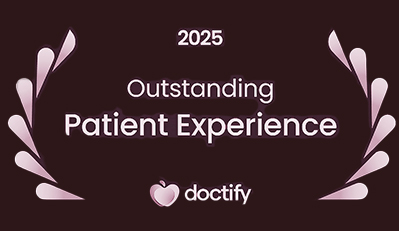
What is best—laser eye surgery or lens replacement?
If you’re tired of wearing glasses or contact lenses, you’ve likely come across two popular options—laser eye surgery and lens replacement surgery.
Both can correct vision and reduce your dependence on glasses. But which one is best?
At Mitry Vision, we specialise in lens replacement surgery, and for many of our patients—especially those over 45—it’s the better long-term option. In this blog, we’ll explain why, and help you understand the differences so you can choose what’s right for your vision and lifestyle.
The basics: what’s the difference?
Laser eye surgery reshapes the surface of the eye (the cornea) using a laser. It corrects refractive errors like short-sightedness, long-sightedness, and astigmatism.
Lens replacement surgery (also known as refractive lens exchange) involves removing your eye’s natural lens and replacing it with a clear artificial lens called an intraocular lens (IOL). This corrects your vision and also prevents cataracts in the future.
Why we focus on lens replacement
At Mitry Vision, we specialise in lens replacement because it offers lasting, life-enhancing results—especially for people aged 45 and over.
That’s the age when the natural lens starts to stiffen and lose its ability to focus on close objects. This is why many people start needing reading glasses or varifocals.
Laser surgery reshapes the eye’s surface but doesn’t stop the natural lens from ageing—so people often still need reading glasses after laser treatment.
Lens replacement removes that ageing lens and replaces it with a tailored solution, giving you clear vision at multiple distances—and protecting you from cataracts later.
Who is lens replacement best for?
Lens replacement surgery is ideal if you:
- Are 45 or older
- Use reading glasses, varifocals, or multiple pairs of glasses
- Have early signs of cataracts
- Have a strong prescription
- Want a permanent solution to avoid future lens changes
- Are not suitable for laser eye surgery (due to thin corneas or dry eyes)
If you tick any of the boxes above, lens replacement may be your best option.
What if I’m younger?
If you’re under 40 and your prescription is stable, laser eye surgery may still be a good choice. But even in younger patients, we assess on a case-by-case basis.
Our priority is matching the right procedure to your unique eyes and vision goals—not just offering what’s popular.
What makes lens replacement a better long-term solution?
- It treats both distance and near vision
Unlike laser eye surgery, which often corrects only one focal point, lens replacement can help you see clearly at all distances—with the right type of intraocular lens. - It prevents cataracts
Since the natural lens is removed during surgery, you can’t develop cataracts later in life. That means no need for future cataract surgery. - It’s suitable for high prescriptions
Laser vision correction is best for mild to moderate prescriptions. If yours is strong, lens replacement may provide better clarity and accuracy. - It’s not affected by age-related lens changes
Laser surgery doesn’t stop presbyopia—the gradual loss of near vision. Lens replacement solves this problem at the root.
Are there different types of lenses?
Yes—and that’s another advantage of lens replacement.
Depending on your needs, we offer a range of intraocular lenses (IOLs):
- Monofocal lenses – for clear distance vision
- Multifocal or trifocal lenses – to see clearly at near, intermediate, and far distances
- Toric lenses – to correct astigmatism
- EDOF (Extended Depth of Focus) lenses – for a smooth range of vision with fewer visual side effects
We’ll help you choose the one that fits your lifestyle—whether that means reading without glasses, driving comfortably at night, or reducing screen strain.
What are the downsides?
Like all surgery, lens replacement carries small risks, such as:
- Infection or inflammation
- Glare or halos (more common with certain lens types)
- Dry eyes or light sensitivity (usually temporary)
We take every precaution to reduce risks and guide you through your recovery.
How long does recovery take?
Most people feel back to normal in just a few days. Vision improves quickly, and full healing takes a few weeks. You’ll use eye drops and attend follow-up appointments to make sure everything’s going smoothly.
What about laser surgery?
Laser eye surgery is still a safe and effective choice—especially for younger adults who don’t yet rely on reading glasses.
But if you’re over 45 and looking for long-term freedom from all types of glasses, lens replacement is the more comprehensive and permanent solution.
So, what’s best?
If you’re under 40, laser surgery may be a good match.
But if you’re 45 or older, want to correct both distance and near vision, or avoid cataracts in the future, lens replacement surgery is often the best choice.
That’s why we specialise in it.
Take our free self-test to see if lens replacement could be right for you. It only takes a minute—and could be the first step to clearer vision.
Find out if you are suitable for vision correction
Not everyone is eligible for vision correction surgery.
Find out if you could benefit from this life changing surgery by taking the quick self-suitability quiz below:




